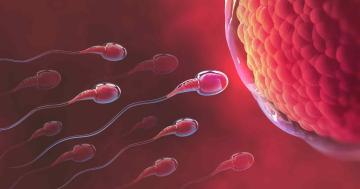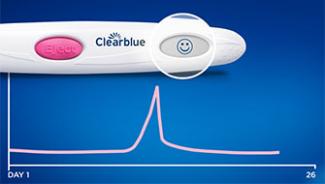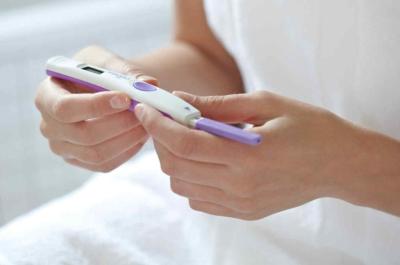Learn the truth about your fertility

There are many sources of information on trying for a baby, but we don’t always know for sure what is true and what isn’t. Read more to discover that some of the ‘facts’ we may take for granted are in fact just myths, and then uncover the truth.
Video - Fertility Myths & Facts
(X) MYTH: It's possible to get pregnant at any time of the month.
(✓) FACT: To get pregnant, you need to have sex on the days leading up to and around when you ovulate. The two to three days prior to ovulation, and the day of ovulation itself, being your most fertile days. Once the egg has gone (usually within a day of ovulation) you cannot get pregnant until after your next menstrual cycle has started. So methods that tell you when you have ovulated are of no help if you are trying to conceive!
(X) MYTH: Menstrual cycles are ALWAYS 28 days long and every woman ovulates on Day 14.
(✓)FACT: The average menstrual cycle is 28 days long, but every woman is unique and nearly 50% of women’s cycles vary by 7 days or more1.. As menstrual cycles vary in length, so does the timing of ovulation, so it can be difficult to know when YOUR fertile days are.
(X) MYTH: You'll get pregnant quickly if you track your temperature.
(✓)FACT: Tracking your basal body temperature is not recommended to help you get pregnant, since a woman's body temperature rises AFTER she has ovulated by which time it is too late to optimise the chances of conception in that menstrual cycle2.
(X) MYTH: I never used a hormonal birth control method, so we should get pregnant as soon as we start trying.
(✓)FACT: Just because your hormones haven’t been affected by hormonal contraceptives doesn't necessarily put you at an advantage. Your body may be better able to regulate itself but this doesn't mean you can get pregnant any more easily. Your fertility can be influenced by many factors other than contraceptives.
(X) MYTH: I conceived my first baby easily, so the next pregnancy should be easy
(✓)FACT: There’s no sure way of knowing. You’ll be older, you’ll definitely have less time to be spontaneous with your sex life and you may even have a different partner – all of these influence your chances of pregnancy. If you are under 35 and have been trying to get pregnant for a year, talk to your doctor (six months if you are over 35).
(X) MYTH:You can't get pregnant during your period
(✓)FACT: If you have a very short menstrual cycle, but bleed for many days at the beginning of your menstrual cycle, it is possible that you may already be within the beginning of your fertility window before your bleeding has stopped.
(X) MYTH: Being stressed will stop me getting pregnant and using an Ovulation Test will make it worse
(✓)FACT: While stress is never healthy, unless it’s interrupting your periods or sex life, it won’t stop you conceiving. It has been suggested that using ovulation tests to time intercourse on the most fertile days can be stressful, but a recent study by Prof. Ledger and Clearblue found that using these tests is no more stressful than trying to conceive without them. In fact, in this study 77% more women got pregnant in the group that were using the tests3.
Also remember it’s normal for sex to start to feel mechanical if you’ve been trying for a baby for a while. This is something a lot of couples experience and it doesn’t mean there’s anything wrong with your relationship. Most couples accept that baby-making sex can be different.
Professor Ledger’s 1 minute on: Stress and conceiving

Digital Ovulation Test: pinpoints your 2 most fertile days
In every cycle there are only a few days when a woman can conceive, so having sex on these days is very important if you are trying to get pregnant.


